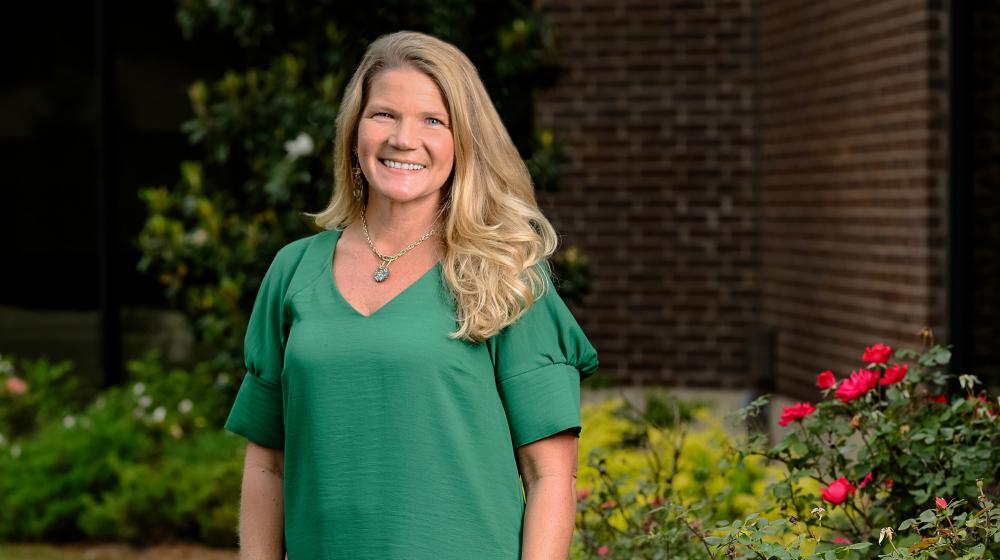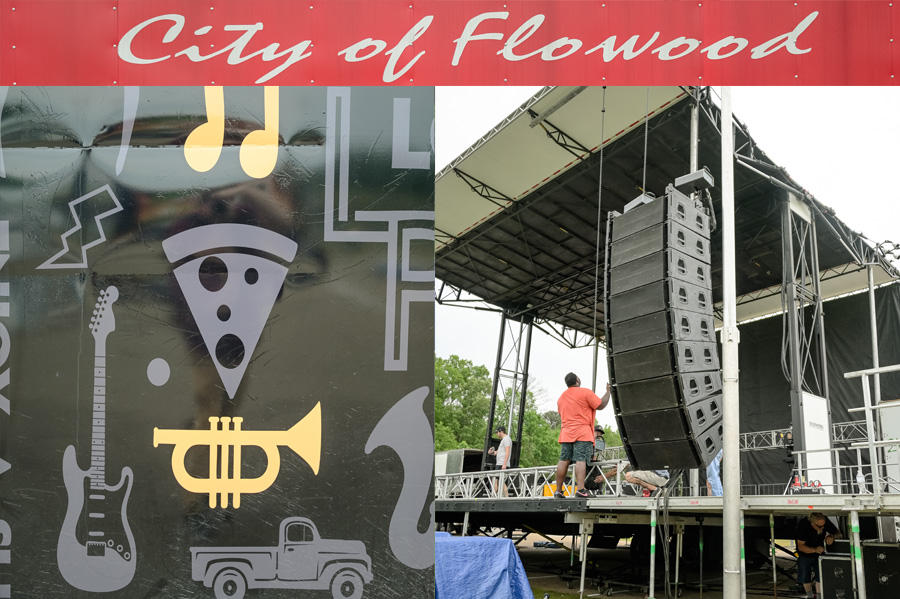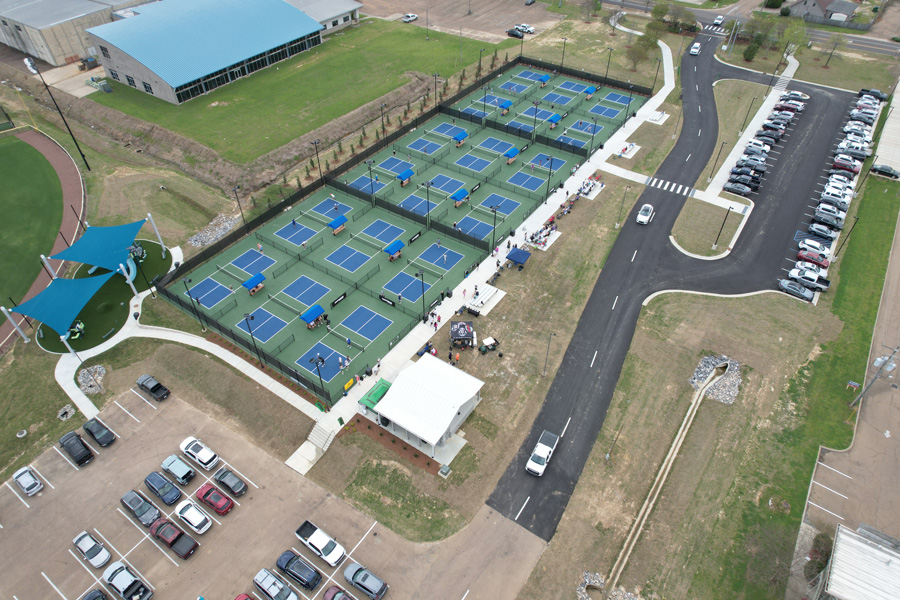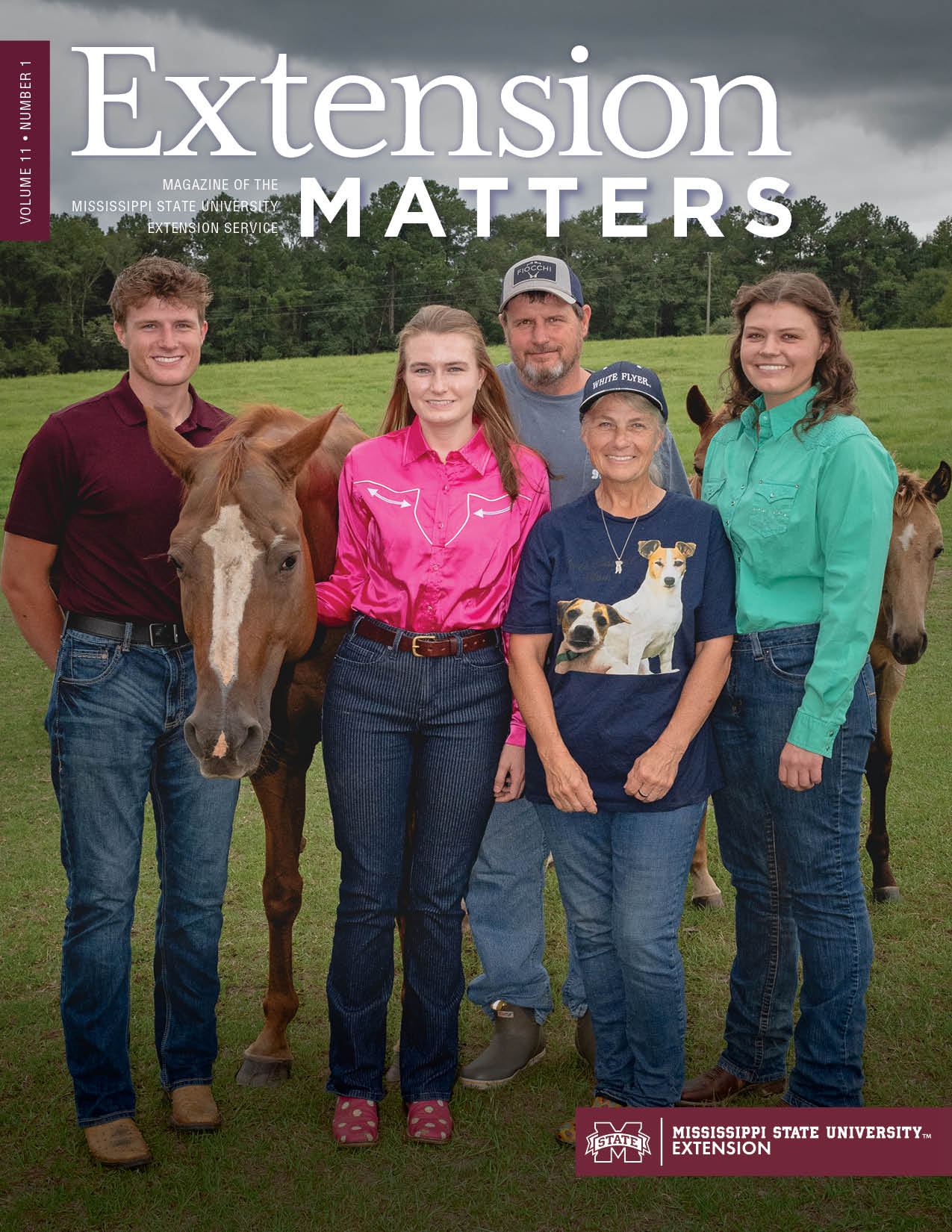Finding Flowood’s Identity

Janet Reihle, Flowood Chamber and Visitor Center board of directors
Flowood grows tourism through Extension’s Excellence in Tourism Leadership program
Story by Leah Bowers | Photos by Kevin Hudson
“MSU can do so much! They can measure the economic impact of hosting events in your city, and they can help create plans for retail and greenspace design that help ensure business success.”
— Janet Reihle
How did Flowood end up with the largest pickleball complex in Central Mississippi?
Intentional planning, an understanding of how tourism benefits local businesses, and commitment to delivering what residents want, says Janet Reihle, former executive director of the Chamber of Flowood and Visitor Center and current board member.
She’s quick to explain, the city in Rankin County made it happen, guided by the tools and network in the Excellence in Tourism Leadership program, delivered by the Mississippi State University Extension Service.
Now the president of the Mississippi Symphony Orchestra, Reihle continues to emphasize all the benefits the tourism program can offer to all Mississippi communities and attractions.
During her years as leader at the Flowood Chamber, Reihle saw the need to develop the city’s tourism for a stronger economic impact and to support local businesses, so she joined the Mississippi Tourism Association. She applied for and received a scholarship to participate in Extension’s Excellence in Tourism Leadership program.
“Almost immediately in this class, I had a network of people who had answers to the questions that I had about how we could increase tourism, learn more about branding, and how to identify our city,” Reihle remembers. “There are definite measurements that we can apply to show how tourism impacts our local businesses.
“That’s important for chambers to know––whether the tourism-attraction efforts are working or not.”

Dr. Rachael Carter, who led program development with a team of Extension specialists, is also a specialist in Extension’s Center for Government and Community Development. She explains that program participants, including rural town leaders, learn how to drive economic development with tourism.
“This is what tourism and economic development are all about: You can uniquely position yourself to take advantage of what your community can do and take it in the direction it wants to go,” Carter says. “Tourism evolves, and this nontraditional, informal education is allowing us to build pathways to show communities how to be more strategic and productive and provide a stronger return on investment.”

During the first year of the two-year program, participants learn about brand, identity, and how to communicate with stakeholders, including community officials, business owners, and local residents. During her first year in the program, Reihle helped Flowood develop a brand identity slogan: “Good. Clean. Fun.”
“Everything we do focuses on quality of life and families, and that’s how we identified our brand: Good. Clean. Fun,” Reihle explains. “Next, the chamber and city invested in a Visit Flowood website and started to market and connect visitors directly to our businesses. The chamber invested in the tuition to allow me to attend the second year of the program and achieve the master’s level of completion of the course because we were seeing the tremendous benefit the program had.”
Again and again, Reihle emphasizes that the network she built in the Extension program inspired her as she approached ways to expand tourism within Flowood.
“Oxford did a presentation about sports tourism; they were using a platform to measure their sports tourism results and report it back to their city officials and business developers,” Reihle says. “That really started further conversations with the city and parks. They encouraged the use of that platform because we could measure results, and not only the economic impact of sports tournaments, but also the tremendous strengths of the facilities we have and what we needed to grow in order to be a premier sports destination.
The City of Flowood invested in a study and began the first phase of expansion.
“I am very impressed with the strategy Flowood used to grow responsibly and test community support before the expansion,” Reihle shares. “By using an existing tennis court and transforming it into four pickleball courts at our Winner’s Circle Park location, we saw how well-used those courts became, and we saw that they were drawing all ages. So we revisited the plans for park expansion, and the pickleball complex became a lot bigger.
“Now that pickleball complex is the largest one in Central Mississippi.”

Carter credits Rochelle Hicks, former executive director of the Mississippi Tourism Association and now director of Visit Mississippi, with coming to MSU Extension with the idea for the class. Excited about the idea of offering one of the few Extension-based tourism leadership programs in the country, Carter took the idea and ran with it.
The Mississippi Tourism Association, now with Danielle Morgan as executive director, is a valuable partner in maintaining the success of the program, Carter explains. Extension works closely with the association to stay in tune with industry needs to advance dynamic, interactive learning.
The program continues to grow as more leaders around the state participate, she says. Program participants apply what they have learned in their local communities and the state by activating tourism-destination development initiatives.
For success, coordination needs to be happening at all levels, Reihle emphasizes.
“We’re absolutely using the resources that we’ve been given, that we’ve learned about through this program, to measure the results and to make recommendations about what to do next,” Reihle says. “It has to be a complete community conversation, a collaborative effort between the chamber, the city, the businesses, and the people who live here.”

The tourism program also introduces participants to other community development groups housed at MSU, including the Carl Small Town Center.
“I was unaware that MSU can do so much! They can measure the economic impact of hosting events in your city, and they can help create plans for retail and greenspace design that help ensure business success,” Reihle says. “This course is giving us guidance from experts and measurable results.
“This network of resources, the communication between the speakers and the class participants, and the motivation we received helped me see we could make an impact,” she continues. “You’re seeing people do it successfully, and there’s a constant evaluation of programs—you get the truth of it: the challenges, the opportunities, and the successes.”
William Poindexter, Extension program manager, oversees the day-to-day operations of the tourism program and facilitates the networks developed among the participants. For specific questions about Extension’s Excellence in Tourism Leadership program, contact him at william.poindexter@msstate.edu or 662-325-3141.

